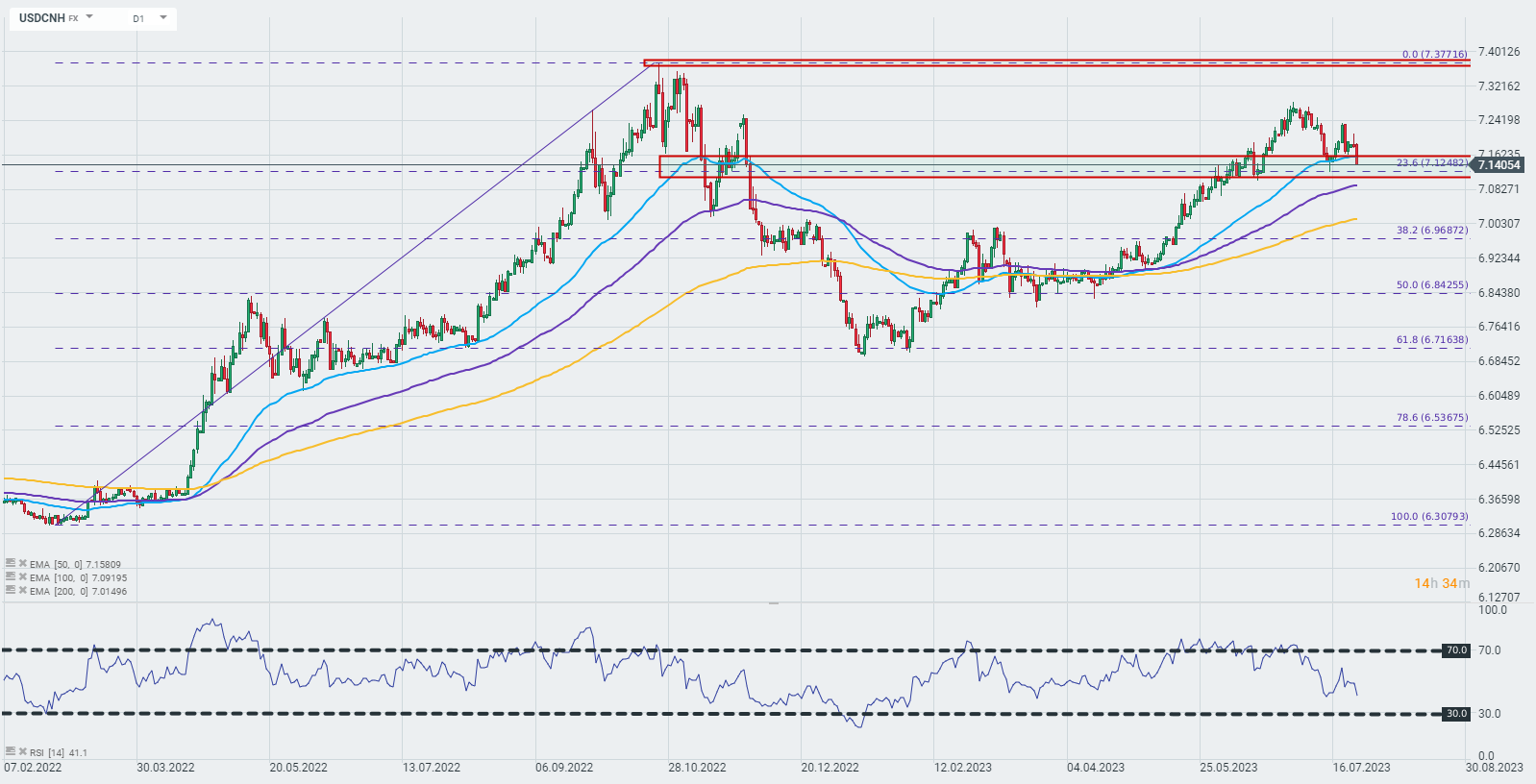The theme of the morning session that generated the most market volatility was reports of further stimulus solutions to the Chinese economy. During a meeting of China's Politburo (i.e. an important part of the Chinese Communist Party's Politburo focused on the State's current political affairs), announcements were made that indicated a willingness to introduce solutions to improve the troubled property and debt markets. In the face of this news, China's real estate-focused corporate benchmark climbed 11%, posting its biggest one-day gain in eight months and bolstering sentiment around APAC markets and the yuan itself.
Moreover, the Chinese currency itself was boosted today by another factor, namely the PBoC's decisions to set the official reference rate for the USDCNH pair at 7.1406 (versus the expected 7.2044), which encouraged local banks to resell USD in the FX market and thus repurchase CNH.
As added by Morgan Stanley analysts, the euphoria around today's statements is mainly due to the words that came out of the Politurbo meetings. At the time, the establishment communicated that "real estate is for living, not for speculation", thus assuring the upcoming policy optimisations.
 The USDCNH pair is trading close to 0.61% down today and is testing the support zone set by the 23.6% Fibo measure of the upward wave initiated in early 2022. Source: xStation 5
The USDCNH pair is trading close to 0.61% down today and is testing the support zone set by the 23.6% Fibo measure of the upward wave initiated in early 2022. Source: xStation 5

Daily Summary - Powerful NFP report could delay Fed rate cuts

Daily summary: Weak US data drags markets down, precious metals under pressure again!

BREAKING: US RETAIL SALES BELOW EXPECTATIONS

Takaichi’s party wins elections in Japan – a return of debt concerns? 💰✂️


